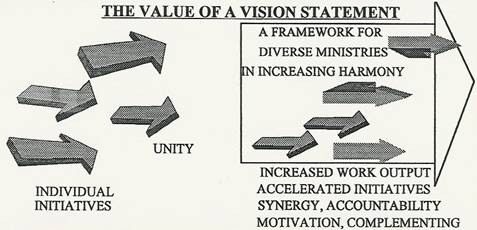
Urban Leadership Foundation
A hub for leadership training in cities and among the world's 1.4 billion slum-dwellers
Consultations need to be organized so that friendships, networks, common goals and visions can be discovered.
Prior
to moving from the building blocks into active advance, there should be a consultation with the "change
agents" who have a desire to see the city transformed. This should be by invitation but include the
evangelizing evangelicals, the activists, the visionaries, the
strategists, leaders of networks
targeting specific issues in the city, the church planters, and leaders of movements. As they look at the research of the church and
the city, and they consider where the
church needs to be, as they swap stories of how they are planting churches,
then a shared knowledge of processes emerges, particular to that city, and a shared sense of a strategic plan begins
to emerge.
These
should be a story-telling context, with multiple inputs. A workable plan is:
·
20-30 leaders meet over two days
·
each leader of a network or movement making a
10 minute presentation with 10 minutes for response and prayer from the others.
·
No-one is there to give hour long sermons, as
this is a collective discerning of God's purposes.
·
Each person prepare their presentation prior to
the consultation in a two page format, stating name of their network, a vision
statement, goals and milestones, and activities to accomplish these.
·
Introducing
the concept, and summarizing the discussions, the leader or facilitator needs
to be able to integrate the collective decision-making process.
A
simple broader-based pastors' gathering may occur at any time within the
process to keep them informed and involved in the formulation of vision for the
city. The pastors are an essential element in the whole process as they are the
spiritual leaders of the city, but they are not always the first to be able to
generate or accept change, so do not depend on this group as the movers of
vision. Pastoral ministry and training
is generally reactive, problem-solving rather than pro-active goal accomplishing.
Building
around those gifted as evangelists, in apostolic and prophetic roles leads to
finding the keys to change. Once they
are motivated and have drafted out a plan, then pastors and other leaders and
officials can be drawn in to broaden the process (and theology), without being
threatened in their official roles of sustaining existing structures or
overloaded in their pastoral roles.
The
purpose of this "Kingdom in the
City" consultation is for the people to reflect on the theme,
"What would the city look like if it was truly living under the Kingdom of
God?", this looks at the broader issues of the impact of the church in the
society and social structures of the city. Looking at the city goes beyond
church planting to the issue of what are we discipling people for? This may
involve that wing of the church that is less evangelical, but has grappled more
deeply with social political issues.

This is typical of what many
urban ministry networks developed from the
By the end of the Visionaries' and "Kingdom
and City" consultations, a vision for the city should be emerging. It may have a number of complex parts.
·
A
simple summary needs to be refined.
·
Ideally
from each consultation will be a two page summary of the visions, goals and plans
of each leader of a network or movement who is involved in making a
presentation.
Out
of it slogans and campaigns need to be generated for broad-scale
mobilization. Don't leave it as a nice
theological or strategic document - let the marketers and mobilizers exercise
their gifts. Simple ideas mobilize. Simple ideas multiply broadly and give
linkages onto which multiple organizations can connect.
All of these processes lead towards an integrating Congress, where the
vision becomes a prophetic call to the whole church of the city with
mobilizing processes worked out and integrated.
© Viv Grigg
and the Encarnação Alliance Training Commission
For problems or questions regarding this web contact
web@urbanleaders.org
Last updated: 05/15/09.